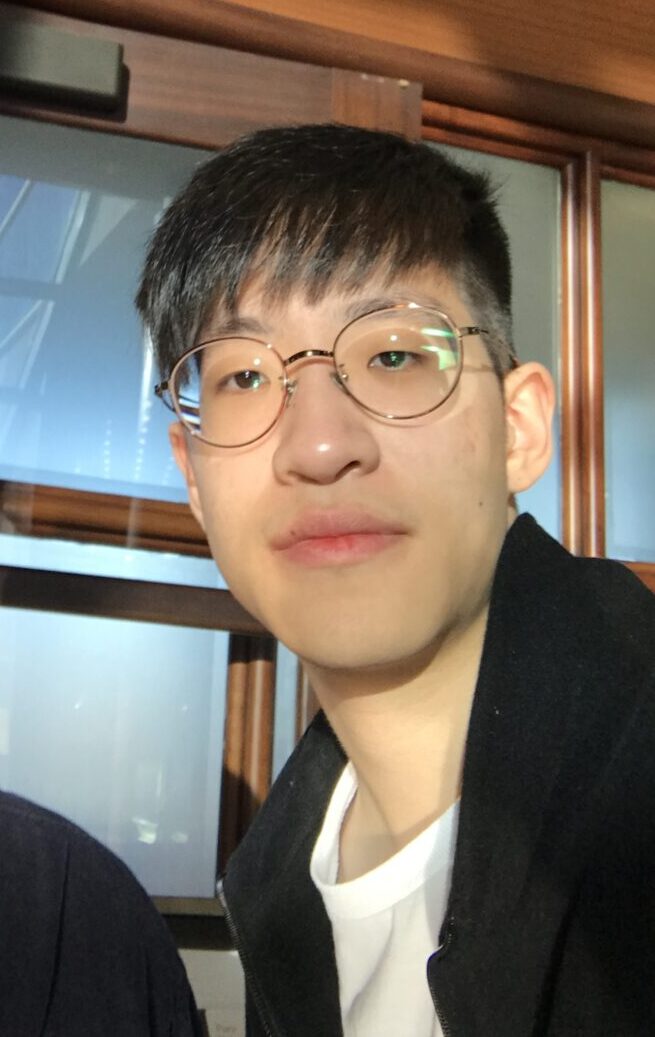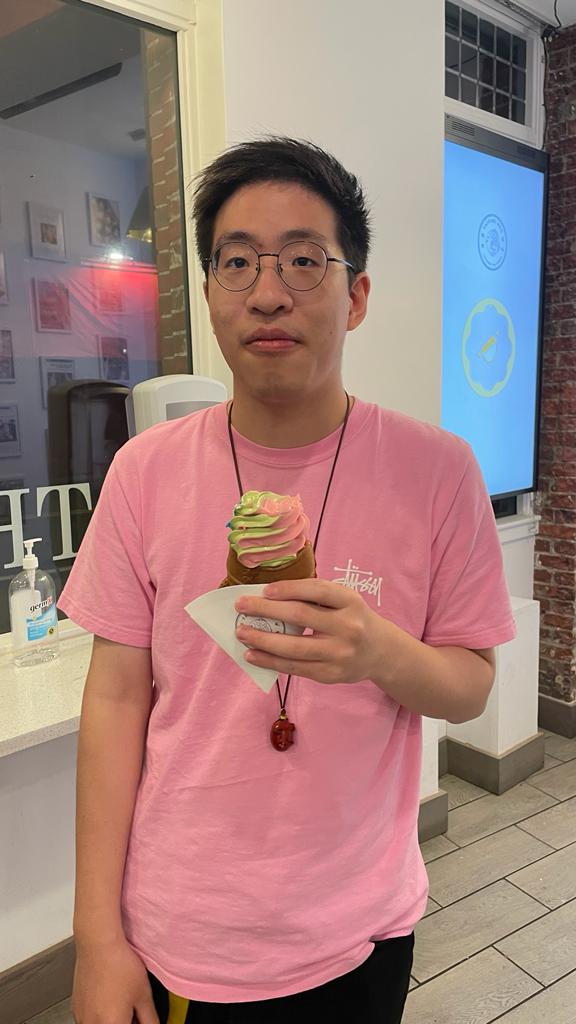I was supposed to finish this article in 2022 along with everybody else in the Hoot E-board at the time, but I’m glad I didn’t until now. My undergrad years were like a dull, unfinished story. Thankfully, my two years as a grad student gave the narrative some much needed tension and a satisfying ending. (I’d like to thank Rachel Rosenfield ’25, my old deputy editor and current managing editor, for reminding me to finally submit this article.)
My first four years at Brandeis were almost too good to be true. I got everything I wanted almost immediately. I quickly found a major that I really liked, I entered into a stable relationship and I started working in the best campus newspaper.
I took great pride in the fact that I was the only person who specializes in video game reviews—I don’t think The Justice ever had someone like that. I had found my niche, which encouraged me to write weekly. In my senior year, I was one of the editors for the arts section and got to work with wonderful people like my co-editor Caroline O ’22. I accumulated many articles that I still show to people whenever games I reviewed are brought up in conversations. Working for The Hoot remains to be my favorite part of my non-academic life here. I miss the high I got when the editors in chief told me that my scathing review of “Raid: Shadow Legends” got more than 30,000 views on our horrible website that still doesn’t have a proper search function. Had I not gone into philosophy, I think I would have pursued a career in media and journalism. In some possible world, I am a small YouTuber trying to make it big making video essays on my favorite games.
Freshman me thought that English was my calling, but, thankfully, he was wrong. I will always love the study of literature in general, but I quickly became disillusioned by how uncritical the discipline actually is. It seems to be much more interested in entertaining ideas than actually evaluating them. I’ve seen English professors quote, without a hint of skepticism, some famous author or critic, even though the quote was either completely obscure or at first glance implausible. The atmosphere for classes just seemed too accommodating: almost nothing a student said would ever be met with resistance or close examination from the professor. There’s a certain cognitive dissonance within the discipline; one is trained to think critically when it comes to interpreting a text, but that same rigor is nowhere to be found when it comes to examining the methodology and pedagogy on which the discipline is built upon. (Disagree with me? Email me at chuang@brandeis.edu so you can tell me how wrong I am.)
However, an exception must be given to the wonderful Professor Laura Quinney, whose thought-provoking classes got me interested in philosophy in the first place. I recommend her courses whole-heartedly.
Aside from her, the wonderful philosophy professors here showed me the proper path. Why waste my life away psychoanalyzing “Daisy Miller” through a Lacanian lens, when I could be thinking about the existence of God, time travel or death instead? Obviously, literature in general invites such inquiries, but the field of study itself simply lacks the tools to conduct them. It can’t even begin to address the question of what fictional characters are, which seems like such an important and obvious question in retrospect. But philosophy can, or at least attempts to do so.
I had so much fun with philosophy that I decided to apply to Brandeis’ BA/MA program for philosophy. Here, my story truly began.
Right away I experienced some degree of imposter syndrome. I heard from the department that, for some reason, I was the only person who applied to the BA/MA program (not to be confused with the MA program). This paired with the fact that my writing sample was dogshit made me somewhat question whether I was admitted mostly as a guinea pig for the new program and less as a promising candidate.
Being a grad student also meant it was time to seriously consider my career options. I love philosophy to death, but am I really willing to spend at least the next few years of my life doing it? Am I really prepared to face the abysmal job prospects that this path leads to?
While these questions lingered in the back of my mind, I was suddenly faced with the end of a four-year relationship after the first semester in the program. I was a wreck emotionally, which greatly exacerbated my feelings of inadequacy. I had never felt so lonely and insecure in my life. I don’t know how I could have coped without all the wonderful friends I made in the philosophy department. I am eternally grateful for them being there when I needed them the most. I wish I was as good of a friend as they were to me.
As any learned reader knows, now was a great time for character growth, and I was fortunate enough to be able to capitalize on it. Somewhat paradoxically, the more I worried about not being good enough, the more determined I was to show everyone how good I was and how much better I could be. My psyche was divided into two halves, one with all the insecurities and the other with all the confidence in the world. I attribute this to the fact that, despite everything, I have a gigantic ego. And incidentally, I’m a masochist who enjoys having obstacles to overcome. Losing a major part of my life also allowed me to focus more on the things I could truly count on. I could lose a relationship at any moment, but nothing could ever take away my love for philosophy. I came to love it even more than I already did, even though I still rarely did the assigned readings. It was the only thing that brought me joy most days, and I made sure that I performed so as to not disappoint myself. I became more and more active within the department, making many new friends along the way (who knew alcohol and philosophy would mix so well?). I was finally determined to apply for a PhD program for two reasons. I came to the realization that philosophy truly was my calling, given how much more I had come to love it. And I desperately wanted to prove to myself that I was good enough. I was obsessed with this goal. I had never wanted something so bad in my life.
The most important aspect for any philosophy grad school application is the writing sample, so I had to make sure it was as original and perfect as it could be, especially considering that my last writing sample was so bad I can’t even bear to think about it. I started doing research the summer before the semester began. When it did, I set deadlines for myself and set up weekly meetings with my advisor, the amazing Professor Palle Yourgrau. I was able to squeeze out a first draft by the end of October, despite me scrapping my initial topic. Then I spent the rest of the semester polishing it and addressing pressing comments from my readers. This paper was all I could think about in those months. I was so stressed out that I couldn’t even bring myself to play my favorite games, which is saying something. I would just feel too guilty for wasting precious time. Thankfully, the end result was, in the words of Professor Eli Hirsch, “impressive.”
But the stress of producing a writing sample was nothing compared to the excruciating wait and the wave of rejections that followed. No one should have to go through this process, not even my worst enemy. Despite philosophy being a niche field, every year there seems to be record numbers of applicants for top programs. The worst example I heard was 600 applicants for three spots. Absolutely insane statistic.
I applied to 14 schools, was rejected by 12 of them, and got two waitlists, which meant more waiting. From late February to mid-April, I had to constantly manage my disappointment and anxiety. It was hard to believe that I, Stewart Huang, winner of the Brandeis Philosophy Prize of 2022 and golden child of the department, wasn’t getting in anywhere. It was even harder to have to mentally prepare myself for the worst: not getting into any program and having to reapply next cycle. On one hand I knew that there was nothing to be ashamed of if that happened: the admission process is so incredibly competitive and arbitrary that many talented applicants don’t get in anywhere. On the other hand, I also knew there were applicants who got into many places that they applied to—they must have done something right. This meant that there were things I could have done better. So I wasn’t good enough after all. I failed those who had high hopes for me, myself most of all. It was so difficult to not think in this way. On most days I had to try to forget about the whole ordeal. The anxiety was so bad in the last two days of waiting that I could barely function.
Fortunately, I wasn’t alone during this period. I had entered into a relationship in March, and my girlfriend gave me so much encouragement and support, for which I am eternally grateful. Love you, babe.
In the end, I somehow got in. I couldn’t believe my eyes at first, but I ended up getting off the waitlist at Stanford. We cheered and jumped and hugged each other like there was no tomorrow. At that moment, all the suffering and hard work paid off, and the world made sense again. I definitely think that this was a well-earned ending, but, looking back, I barely made it. I shudder to think just how close I was to failure. I was THIS close. I feel like I’m in a really satisfying movie—I still can’t believe my life is real. I could not have imagined a better end to my years at Brandeis, aside from me going to Harvard, of course.
I wish you all the same luck in whatever you do.
Peace.




